The size of the world’s tyre market, estimated at USD 179.2 billion in 2020, is projected to increase to USD 222.85 billion by 2026, with a CAGR of 3.7% from 2021 to 2028.
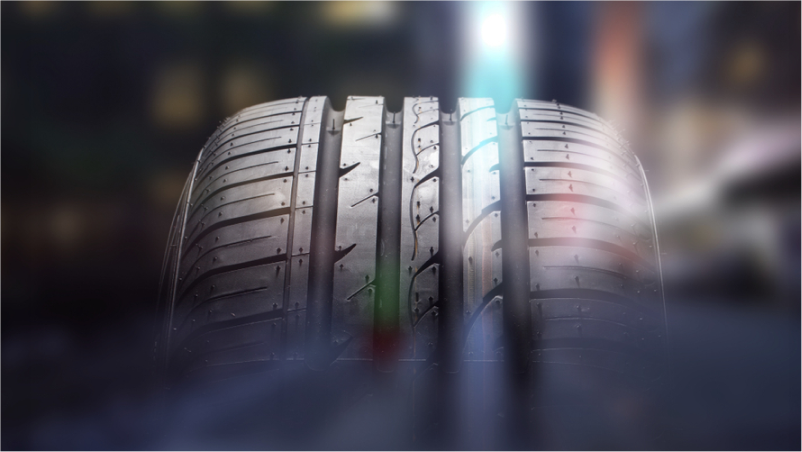
The performance, security, and efficiency of automobiles on the road are greatly influenced by their tyres. It can be challenging for drivers to select the best types of tyre for their needs given the wide range of possibilities available.
Different tyre designs are made to function best with diverse weather conditions, driving habits, and vehicle kinds. Making an educated choice about which tyre is best for your vehicle requires knowledge of the many tyre types, their features, and their advantages.
We shall look at the numerous types of tyres that are available in this overview and study. We’ll talk about a variety of tyres, such as summer, winter, all-season, touring, tubeless, off-road tyres, and performance tyres.
Types of Tyres
To give the vehicle the traction and support it needs, tyres are a crucial part of the vehicle. The performance, handling, and safety of a vehicle can all be enhanced by using the right tyres, while the wrong tyre can have the converse effect.
Today’s market offers a wide range of tyres, each with its own special characteristics thanks to technological advancements. Drivers need to choose the right tyres for their vehicles in order to comprehend the importance of tyres.
The market is filled with different types of car tyres and types of tyres for automobile, each kind has a certain function:
Summer Tyres
As their name suggests, summer tyres are designed to perform and grip as effectively as possible in warm, dry weather. They are designed for usage in warm weather and their rubber compound is meant to be flexible and grippy even at high temperatures. A few of the crucial features of summer tyres are as follows:
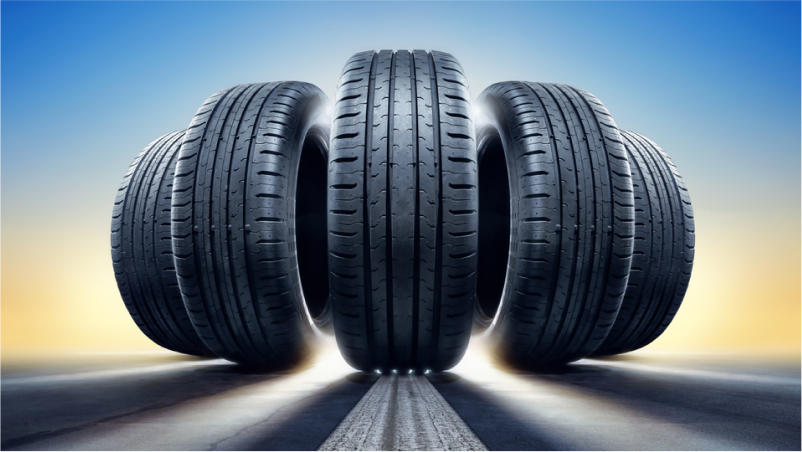
Soft Rubber Composition: Summer tyres contain softer rubber compounds than other types of tyres, which enhances traction on dry roads and maintains tyre performance even in hot weather.
Tread Design: Summer tyres’ tread patterns are made for optimal grip and handling on dry surfaces, and they also help to drain water from the tyre’s contact patch to reduce the risk of hydroplaning.
High-Performance Capabilities: Because summer tyres are designed for high-performance vehicles, they handle and react more quickly than other types of tyres.
Winter Tyres
The purpose of winter tyres, usually referred to as snow tyres, is to offer traction and stability in chilly, slushy, and snowy weather. They are more suited for use in cold weather since they have a different rubber composition and tread design from summer tyres. A few of the important features of winter tyres include:
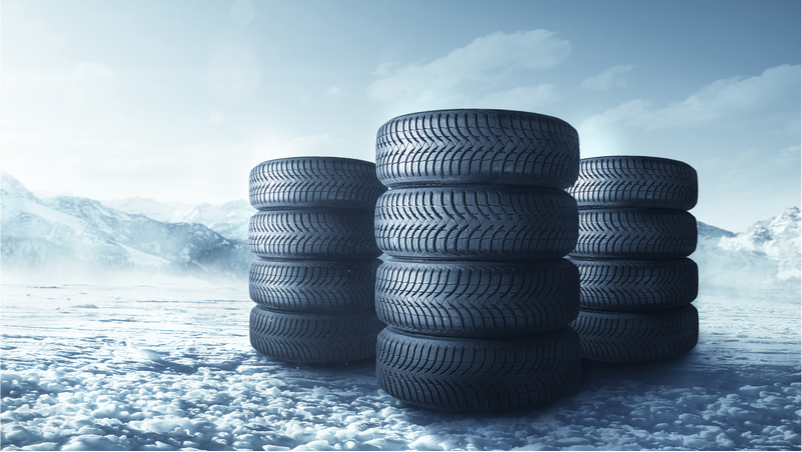
Soft Rubber Compound: Winter tyres have a softer rubber compound that is flexible even in freezing temperatures and offers improved traction on snow and ice.
Tread Design: Winter tyres have a tread pattern that is designed for optimal traction in snow and slush, with deeper grooves and sipes that clear snow off the tire’s contact patch and offer more traction.
Studded Options: Metal studs are sometimes added to winter tyres to increase traction on ice and snow that has been compacted firmly. However, it’s crucial to check local laws before employing studded tyres as they are not always permitted.
Improved Handling and Stability: Winter tyres help to lower the chance of slipping and sliding on snow and ice by improving handling and stability in cold and wet weather.
All-Season Tyres
As the name implies, all-season tyres are made to perform well and maintain traction in all kinds of weather, including warm and cold temperatures and light snow. They are a common option for motorists who don’t want to transition between summer and winter tyres and live in places with moderate weather. Some of the critical features of all-season tires include:
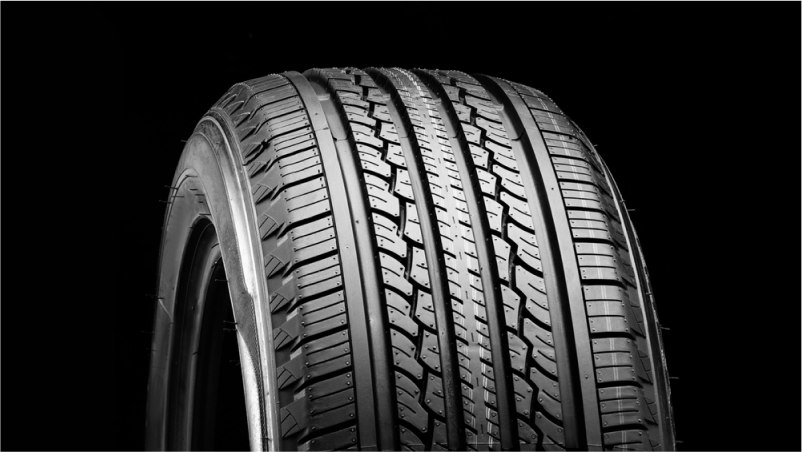
Versatile Tread Design: All-season tyres have a tread pattern that balances performance on dry and wet surfaces while also having some modest snow handling capacity.
Rubber Compound: All-season tyres have a rubber compound that offers balanced grip and durability while performing well in a range of temperatures.
Improved Handling: All-season tyres offer better handling and stability in slick conditions compared to summer tyres, and better handling and grip in light snow compared to winter tyres.
Good Value: All-season tyres can be a good value for drivers who don’t want to swap between multiple sets of tyres throughout the year because they are frequently less expensive than summer or winter tyres.
Performance Tyre
High-performance vehicles require tyres that are tailored for optimal grip and handling in both dry and wet conditions. These tyres are called performance tyres. They are made for drivers that value responsiveness and handling and seek the best handling and performance from their sports or high-performance cars. Some of the key features of performance tires include:
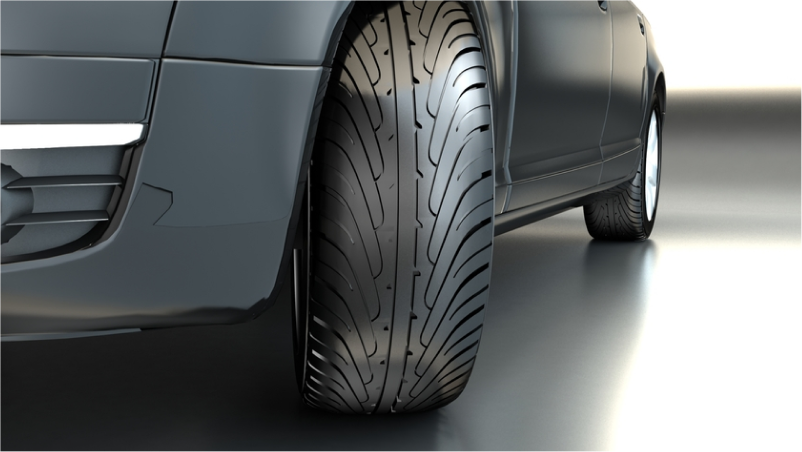
Soft Rubber Compound: Performance tyres have a softer rubber compound, which offers the best handling and grip possible—even at high speeds.
Tread Design: Performance tyres have a tread design that is focused on lateral stability and hydroplaning reduction, and is optimized for maximum grip and handling in both dry and wet situations.
Improved Handling and Responsiveness: Performance tires provide improved handling and responsiveness compared to other tires, with quick and precise steering and braking capabilities.
High-performance Capabilities: Compared to conventional tyres, performance tyres offer better handling and responsiveness, as well as quick and accurate steering and braking capabilities.
Tubeless Tyres
A type of tyre called a tubeless tyre is one that doesn’t require an inner tube to operate. Instead of employing an inner tube, an airtight sealant is used to affix the tyre to the rim directly, resulting in a self-supporting construction. Some of the critical features of tubeless tires include the following:
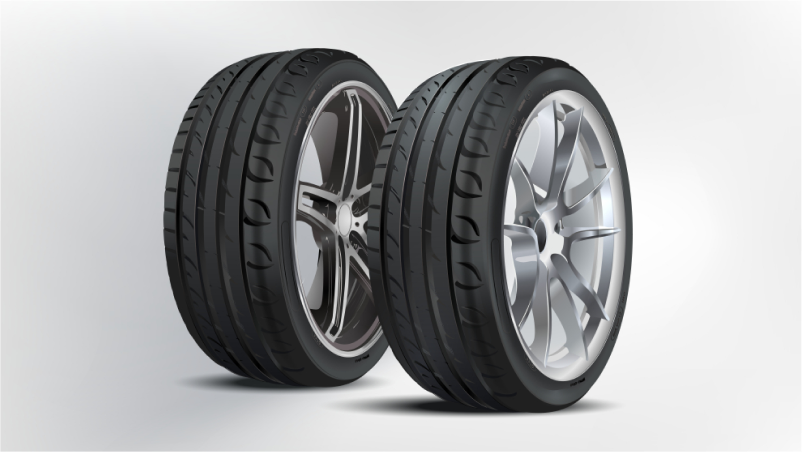
Reduced risk of punctures: No risk of pinch flats or other punctures without an inner tube because the tyre can self-seal small cuts and holes.
Improved ride comfort: When a tyre is not equipped with an inner tube, there is no chance of pinch flats or other types of punctures because the tyre can self-seal small rips and tears.
Improved grip: Tubeless tyres absorb minor shocks and vibrations without the use of an inner tube, making for a smoother and more comfortable ride.
Reduced rolling resistance: Better traction and grip are possible thanks to the tire’s ability to be operated at a lower pressure, especially in off-road situations.
Touring Tyres
One type car tyres made specifically for daily usage, touring tyres offer a blend of comfort, handling, and durability. Touring tyres are frequently installed on sedans, family vehicles, and crossover cars and are made to offer a comfortable and smooth ride over long distances. Some of the critical features of touring tires include:
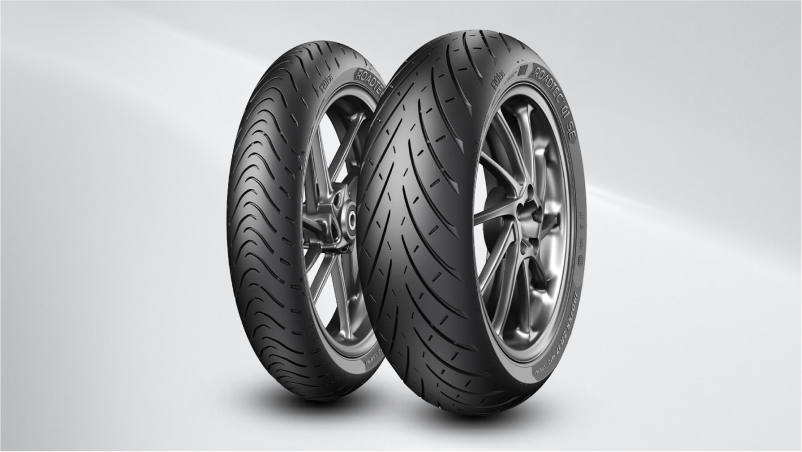
Comfort: Touring tyres focus on decreasing road noise and vibrations to offer a smooth and comfortable ride.
Handling: Touring tyres have good handling and stability with an emphasis on control and safety in both dry and rainy situations.
Durability: ouring tyres feature a robust and durable construction that can handle normal driving conditions and are designed for long-lasting performance.
Versatility: Touring tyres can be used in a range of environments, including both warm and cold climates, as well as mild snow.
Off-Road Tyres
Off-road tyres or one of the types of tyres in automobile are often installed on trucks and SUVs because they are made for off-road driving, but they can also be used on other vehicles for extra performance and aesthetics. Off-road tyres are made for usage on unpaved surfaces including muddy, gravelly, and rocky roads. They differ from other tires types in several important ways, including the following:
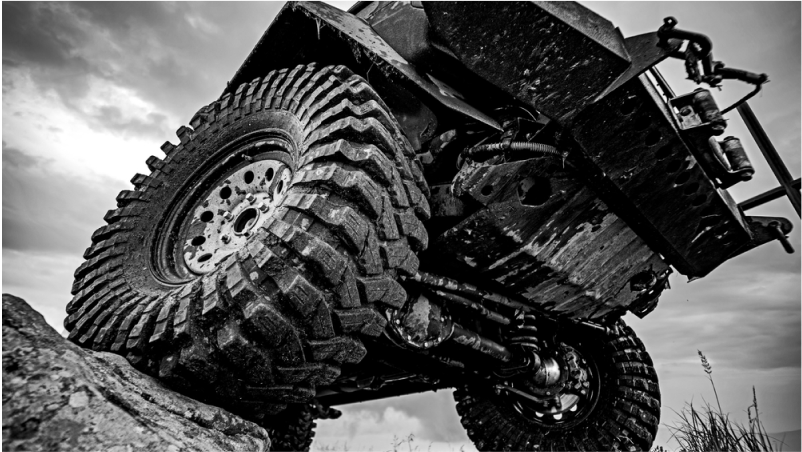
Tread Design: Off-road tyres include deep grooves and broad tread blocks for better traction and stability. Additionally, the tread pattern lessens the possibility of getting stuck by clearing the tyre of mud and other debris.
Tread Compound: The rubber compound used in off-road tyres is intended to be more robust, impervious to cuts and punctures, and to offer good traction on slick or wet ground.
Sidewall Design: Off-road tyres frequently have sidewalls that are strengthened to offer better protection against punctures and to sustain the weight of the vehicle when traveling over difficult terrain.
Aggressive Look: Off-road tyres frequently have a more aggressive appearance with big, blocky tread patterns that grab attention on the road.
Wrapping Up
Tires have advanced significantly since they were first created more than a century ago. Modern tyres are created utilizing sophisticated computer models and field testing, with a focus on delivering the maximum degree of performance, safety, and efficiency.
Also worth mentioning is the role tyres play in protecting the environment in addition to being an essential part of our automobile vehicles accessories. Modern tyres have improved fuel efficiency and emit fewer carbon emissions, which helps to lessen their environmental impact.
To choose the best type of tyre for your needs, take a moment the next time you’re in the market and think about the kind of vehicle you drive, the routes you travel on, and the local weather. No matter where your travels take you, having the correct type of tyres will give you better performance, more safety, and a more enjoyable ride.
